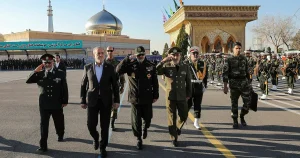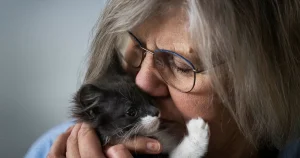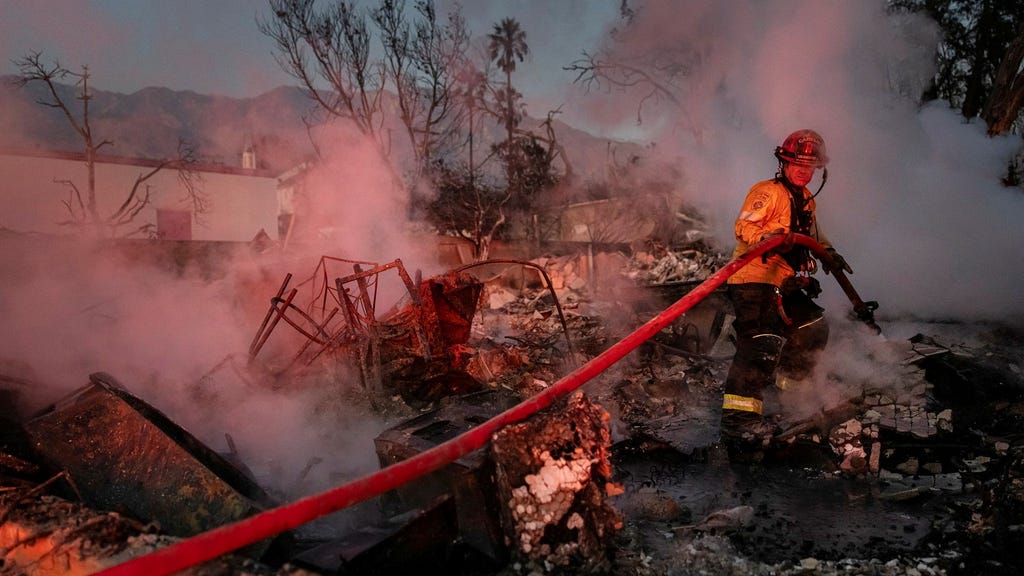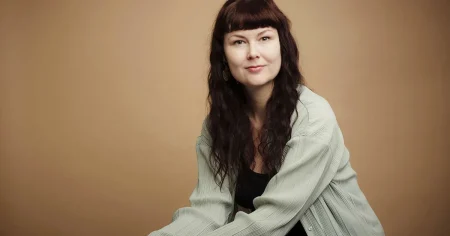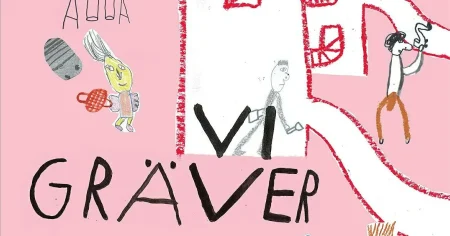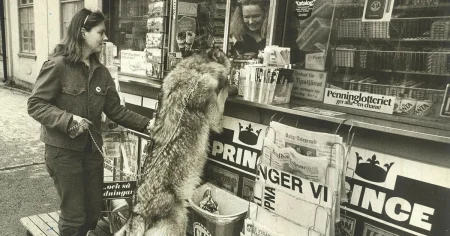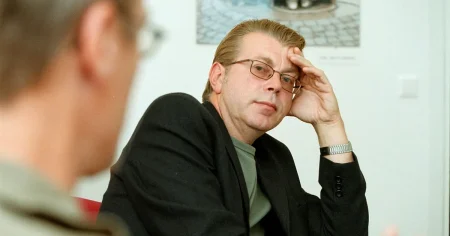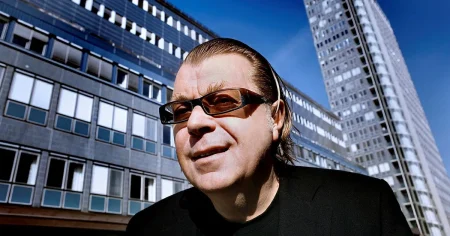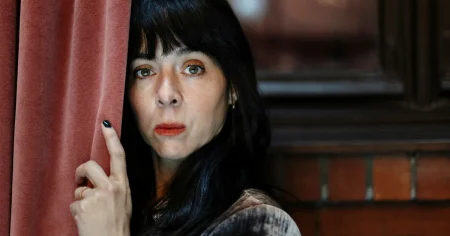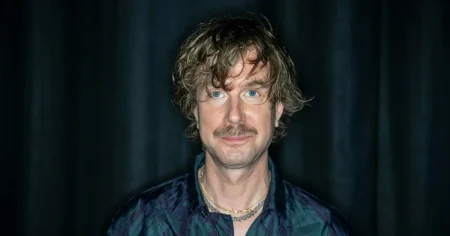The author recounts a childhood experience of near-disaster while babysitting, highlighting the dual nature of fire as both life-giving and destructive. This early encounter foreshadows the larger theme of the article: the devastating wildfires in California and the complex interplay of natural and human factors that contribute to them. The biblical imagery of fire as both divine manifestation and instrument of punishment further underscores this duality, drawing a parallel between the ancient stories and the contemporary crisis. The fires in California, described as a ”horrifying sight,” transcend the usual metaphorical interpretations of fire, revealing its raw destructive power.
The article then delves into the specific circumstances surrounding the California wildfires, citing a ”cocktail of catastrophic ingredients” – heavy rainfall followed by severe drought and hurricane-force winds – as the immediate cause. However, the author goes beyond simply attributing the fires to natural phenomena, emphasizing the role of human activity in exacerbating the situation. Referencing Mike Davis’s book ”Ecology of Fear,” the article argues that the urban planning of Los Angeles itself contributes to a dangerous fire regime, creating a feedback loop where fires accelerate gentrification. Davis’s prescient observation about the increasing cost and danger of firefighting, linked to escalating house prices, resonates with the desperate measures taken by wealthy residents during the recent fires.
The author describes the surreal experience of witnessing the unfolding disaster through social media, where celebrities like Paris Hilton shared images of their destroyed homes. The irony of millionaires seeking private firefighters at exorbitant prices raises pointed questions about the state of American society. While acknowledging the justifiable anger directed at wealthy individuals mourning the loss of their property, the article suggests that the vulnerability of even the elite to climate catastrophes signifies the gravity of the situation. If the wealthiest cannot protect themselves, the implications for the rest of society are dire.
The article then shifts focus to the psychological impact of living under the constant threat of disaster, drawing on Colm Tóibín’s account of the fires in Los Angeles. Tóibín’s experience captures the disorienting oscillation between normalcy and emergency, the strange calmness amidst impending chaos. The author identifies with Tóibín’s sentiment, echoing his feeling of writing ”small sentences while LA burned.” This shared experience highlights the pervasive uncertainty and the difficulty in determining the precise moment when the familiar world is irrevocably altered.
The perspective of climate scientist and activist Peter Kalmus provides a stark contrast to Tóibín’s nuanced account. Kalmus, having left California due to the increasing fire risk, represents the perspective of those for whom the ”apocalypse is already here.” His experience underscores the uneven distribution of climate change impacts, where some communities face immediate and devastating consequences while others remain in a state of relative normalcy, albeit with a growing sense of unease. Kalmus’s observation that climate change effects often arrive earlier than predicted further reinforces the urgency of the situation.
The article concludes by circling back to the author’s own position, writing ”small sentences” while surrounded by the figurative and perhaps literal fires of a changing world. This closing image encapsulates the central theme of the piece: the unsettling coexistence of everyday life with the looming threat of climate catastrophe. The author’s personal anecdote, the biblical references, the sociological analysis of Los Angeles, and the contrasting perspectives of Tóibín and Kalmus all converge to create a powerful meditation on the multifaceted nature of fire and its growing significance in the age of climate change. The piece leaves the reader with a sense of unease and the lingering question of when, exactly, the ”apocalypse” will arrive for the rest of us.


